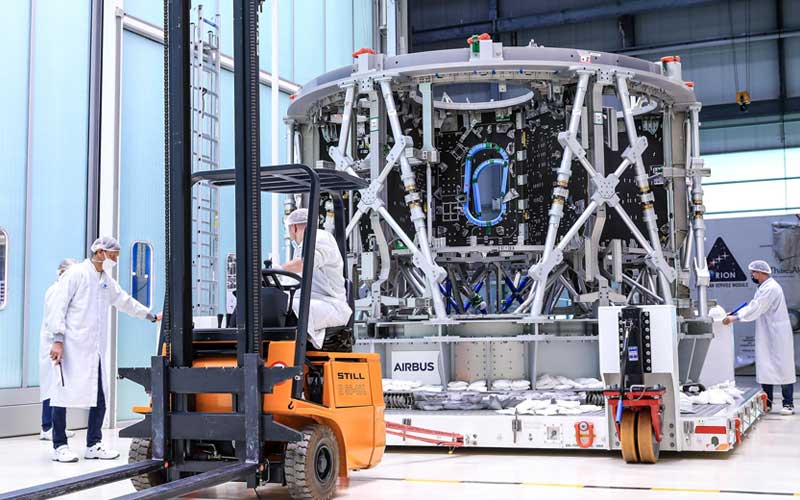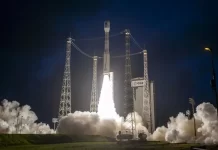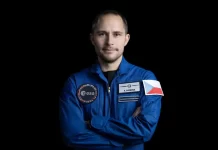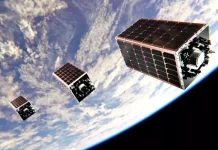
The third European Service Module, which will power NASA’s Orion spacecraft, has left Germany and is on its way to the Kennedy Space Center in Florida. The service module will power the first crewed mission to the surface of the Moon since Apollo 17.
In late 2012, ESA member states agreed to build the service module for NASA’s Orion spacecraft as a way to cover the agency’s share of the International Space Station’s common operating charges after the ATV space station resupply vehicle was retired.
Airbus Defense and Space was awarded a €390 million contract in November 2014 to build the first European Service Module (ESM) and manufacture parts for a second. This would allow NASA to build a second service module itself should ESA decline to continue the arrangement. This first ESM was used aboard the uncrewed Artemis I mission, which was launched in November 2022.
In February 2017, Airbus received a €200 million contract to build a second ESM. This service module will be used aboard Artemis II, the programmes first crewed mission. This second ESM is already at NASA’s Kennedy Space Center for testing as NASA prepares for the launch of its second Artemis mission.
Airbus was awarded a €250 million contract for a third ESM in May 2020. According to a 22 August 2024 ESA press release, this European-made Orion service module recently departed the integration halls of the Airbus facility in Bremen, Germany. It was loaded onto the Ariane 6 transport ship Canopée for its 12-day ocean voyage to the US and the Kennedy Space Center.
In addition to the three Orion service modules already built, Airbus is currently contracted to produce three more. ESA awarded the company a €650 million contract for this bulk order in February 2021.




